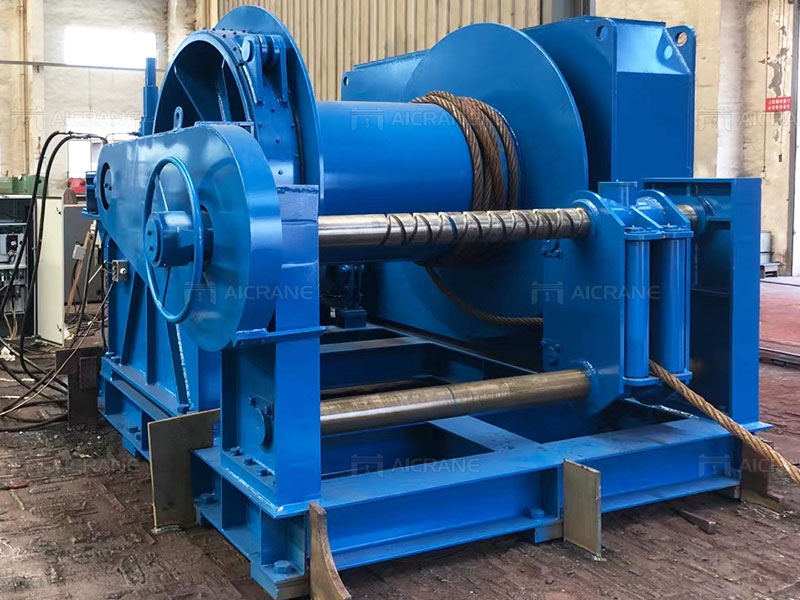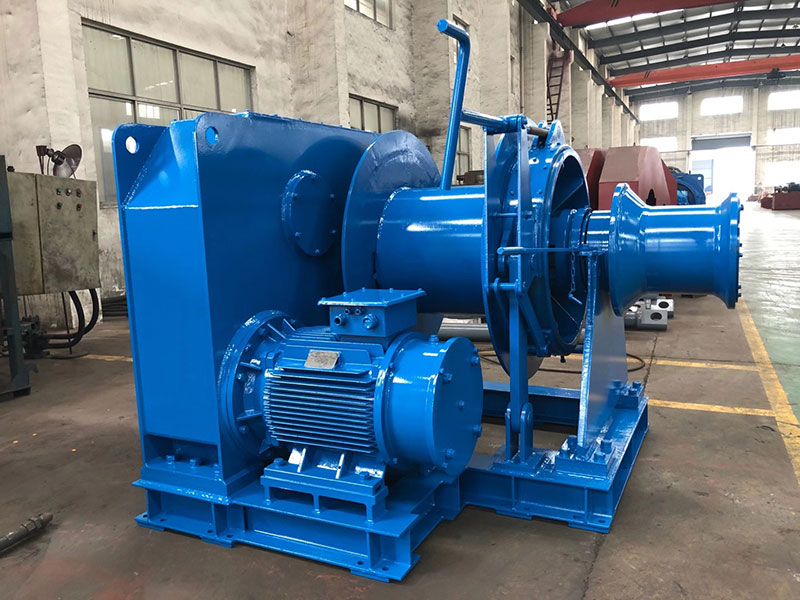Marine electric winches are crucial equipment used in various maritime operations, including ship docking, anchor handling, and cargo handling. To ensure their optimal performance and longevity, it is essential to implement effective maintenance practices. By following a few key steps, you can significantly extend the service life of marine electric winches, enhance their reliability, and minimize downtime. In this article, we will discuss essential maintenance practices to help you maximize the lifespan of your marine electric winch.

Regular Inspection:
Performing regular inspections is vital to identify any potential issues and address them promptly. Inspect the marine winch components, including cables, wires, motor, gearbox, and control systems. Look for signs of wear, corrosion, loose connections, and damaged or frayed cables. Ensure that all parts are properly lubricated and functioning smoothly. Make a checklist to ensure thorough inspections and keep a record of any findings for future reference.
Proper Lubrication:
Effective lubrication is crucial for maintaining the smooth operation of marine electric winches. Refer to the manufacturer’s recommendations for the appropriate lubricant and lubrication intervals. Pay close attention to the winch drum, bearings, gears, and other moving parts. Regularly clean and lubricate these components to prevent friction and reduce wear. Be sure to use marine-grade lubricants that are resistant to water and corrosion.

Cable and Wire Maintenance:
The cables and wires of the electric winch machine are critical components that require special attention. Inspect them regularly for signs of fraying, abrasion, or corrosion. Replace any damaged cables or wires immediately to prevent accidents or operational disruptions. Keep the cables properly spooled to avoid tangles and ensure smooth operation. Additionally, regularly check the tension and alignment of the cables to prevent overloading or premature wear.
Electrical System Checks:
The electrical system of a marine electric winch plays a vital role in its performance. Regularly inspect the control panels, switches, relays, and wiring for any loose connections or signs of damage. Test the voltage, amperage, and performance of the electrical system using appropriate instruments. Keep an eye out for any abnormal fluctuations or irregularities and address them promptly to prevent electrical failures.
Corrosion Protection:
Marine environments expose electric winches to corrosive elements such as saltwater, humidity, and salt spray. Implement effective corrosion protection measures to extend the winch’s service life. Apply protective coatings, such as marine-grade paint or corrosion inhibitors, to vulnerable surfaces. Use stainless steel or corrosion-resistant materials for critical components. Rinse the winch with fresh water after each use in saltwater environments to remove salt deposits.
Proper Storage:
Proper storage practices are crucial, especially during periods of inactivity or when the winch is not in use. Clean the winch thoroughly and ensure it is dry before storing it. Apply a thin layer of lubricant to prevent rust and corrosion. Store the winch in a clean, dry, and well-ventilated area to avoid exposure to moisture and extreme temperatures. Consider covering the winch with a protective tarp or waterproof cover to provide additional protection.
Training and Operator Awareness:
Proper training and operator awareness are vital factors in extending the service life of marine electric winches. Train operators on the correct operation procedures, load limits, and safety protocols. Encourage operators to report any abnormalities or issues immediately. Regularly provide refresher training sessions to keep operators updated on best practices and safety guidelines.
Conclusion:
Extending the service life of marine electric winches requires consistent maintenance practices and a proactive approach to identify and address potential issues. By conducting regular inspections, implementing proper lubrication, maintaining cables and wires, checking the electrical system, applying corrosionprotection, practicing proper storage, and providing training to operators, you can significantly prolong the lifespan of marine electric winches. These maintenance practices not only enhance the winch’s reliability and performance but also minimize downtime and potential accidents. By investing time and effort into proper maintenance, you ensure that your marine electric winch operates efficiently and reliably throughout its service life, contributing to the smooth and successful execution of maritime operations.